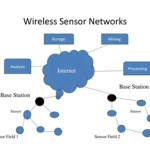Do Door Alarm Sensors Have Batteries?
Understanding the essential components of door alarm sensors, particularly whether they utilize batteries, is crucial for ensuring the effectiveness and reliability of your home security system. This article delves into the essential aspects of door alarm sensors and batteries, providing comprehensive insights to guide your decision-making and maintenance practices.
Battery-Powered Sensors: Many door alarm sensors operate on batteries, offering several advantages. Firstly, they eliminate the need for wiring, simplifying installation and making them suitable for renters or temporary setups. Additionally, battery power ensures continuous operation even during power outages, enhancing system reliability.
Wired Sensors: Wired door alarm sensors are connected to your home's electrical system, eliminating the need for battery replacement. This provides a stable and reliable power source, reducing maintenance requirements. However, wired sensors require professional installation, which may come with additional costs and limitations.
Battery Life and Replacement: The battery life of door alarm sensors varies depending on factors such as usage frequency, sensor type, and environmental conditions. Typically, batteries last for several months to a year before needing replacement. Regular testing and maintenance are crucial to ensure sensors have sufficient power and are functioning correctly.
Choosing the Right Battery: Selecting the appropriate battery for your door alarm sensor is essential. Most sensors require lithium or alkaline batteries, which provide long-lasting power and reliability. Consult the manufacturer's instructions for specific battery recommendations and avoid using rechargeable batteries, as they may not provide the necessary voltage.
Battery Warning Indicators: Many door alarm sensors feature low-battery indicators that alert you when the battery is running low. Heed these warnings promptly and replace the battery to maintain optimal sensor performance. Ignoring low-battery warnings can lead to system malfunctions and compromised security.
Conclusion: The utilization of batteries in door alarm sensors offers convenience, flexibility, and reliability in home security systems. Understanding the different types of sensors, battery life, and maintenance requirements empowers you to make informed decisions and ensure your system's effectiveness. By implementing regular testing and maintenance practices, you can maximize the performance and lifespan of your door alarm sensors, safeguarding your home and providing peace of mind.

Gc3 Door Window Sensor Batteries

Ge Security Door Window Sensor Batteries

Ge Security Door Window Sensor Batteries

How To Replace The Battery In Your Wireless Window Door Sensor Charleston Security Systems

How To Replace Your Adt Door Window Sensor Batteries

Ge Security Door Window Sensor Batteries

Door And Window Alarm Wireless Detectors With Remote Control Batteries Anti Theft Intrusion Magnetic Sensor For Home Ki Fruugo No

Door Sensor 120db Wireless Home Window Magnetic Burglar Security Alarm System For Homes Cars Sheds Caravans No Battery Included Made Of Abs Plastic S Com
I Changed My Front Door That Held Adt Sensor After Replacing The Re Installed Keep Getting A Tamper Won T Go Away How Can Reinstall

Tech Tips Replace A Battery In Dsc Vanishing Slim Line Wireless Door Contact Ev Dw4975








